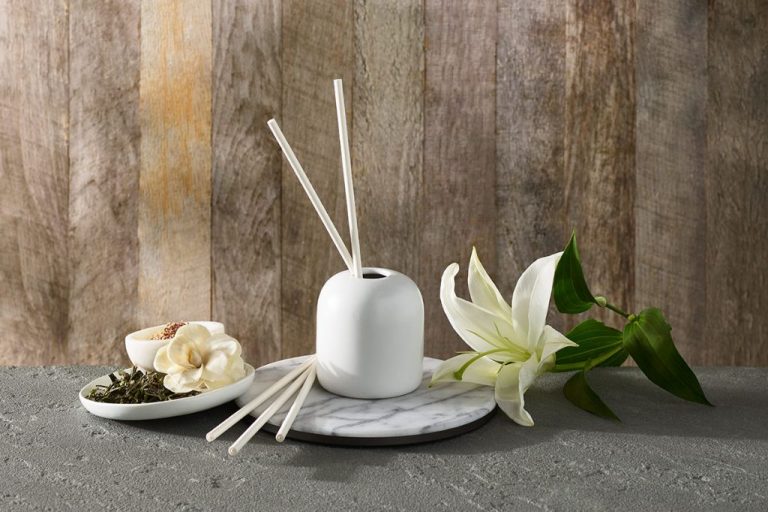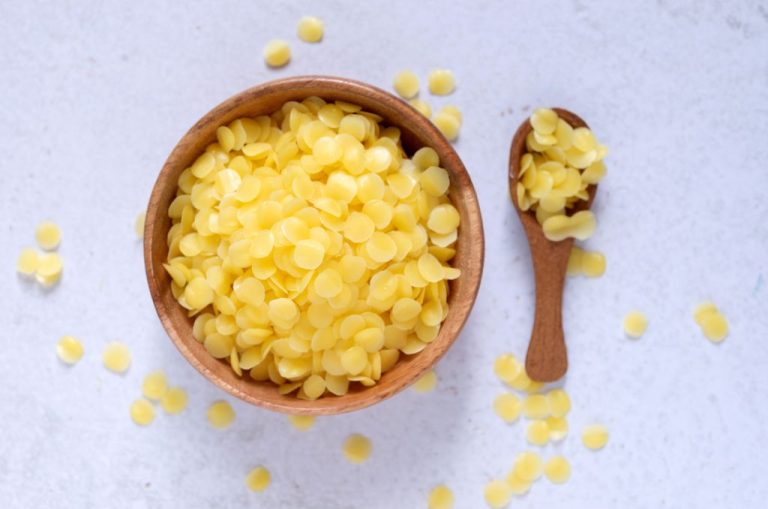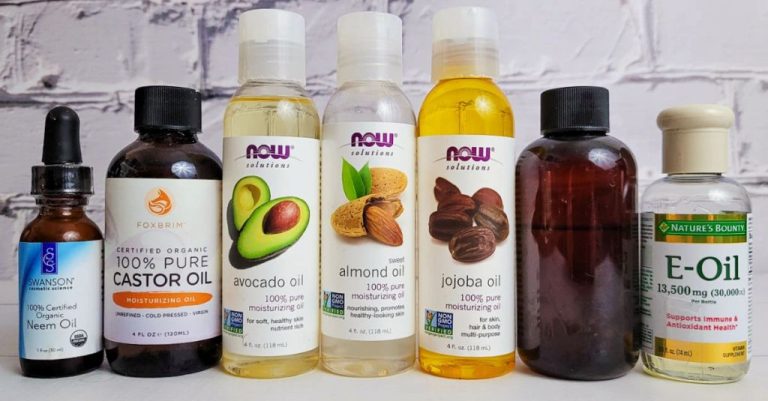Can Fragrance Oils Be Natural?
What are fragrance oils?
Fragrance oils, also known as aromatic oils, are highly concentrated scented oils that are derived from natural sources like flowers, fruits, plants, and spices ([1). They are made by extracting the essential oils or aromatic compounds from plants through methods like steam distillation, solvent extraction, expression, and enfleurage ([1).
The extracted oils are then mixed with carrier oils like coconut oil and jojoba oil to create a concentrated fragrance. There are two main types of fragrance oils:
- Natural fragrance oils – These contain natural ingredients extracted from plants.
- Synthetic fragrance oils – These contain artificially created aroma compounds.
Fragrance oils are used for perfumes, cosmetics, aromatherapy, candles, and more. They have much stronger scents compared to essential oils and carrier oils.
Difference between fragrance oils and essential oils
The key difference between fragrance oils and essential oils is how they are produced.
Essential oils are concentrated extracts that are distilled or pressed from plants, like lavender flowers or eucalyptus leaves. The oils capture the plant’s scent and flavor, or “essence.” Essential oils are all-natural and contain the true scent of the plant.
Fragrance oils, on the other hand, are synthetic or use essential oils as a base. Fragrance oil manufacturers blend aromatic chemicals and essential oils together to create appealing scents. The fragrance does not have to come from a real plant source. Fragrance oils allow for consistent, cost-effective, and customizable scents to be mass produced (https://lizush.com/blogs/lizush-blog/the-difference-between-fragrance-oils-and-essential-oils).
In summary, essential oils come directly from plants while fragrance oils are synthetically created in labs to produce desired scents.
Natural vs synthetic fragrance oils
Natural fragrance oils use plant-derived ingredients like essential oils, absolutes, and carrier oils to create pleasing aromas. According to Whiskey and Woof [1], natural fragrance oils only use ingredients from plant sources, without any synthetic components. Natural fragrances are extracted from plants through methods like steam distillation or solvent extraction.
Synthetic fragrance oils, on the other hand, are made from chemical compounds created in a lab. As Fragrance Oils Direct [2] explains, synthetic fragrance oils allow perfumers to copy natural scents or create entirely new fragrances not found in nature. The molecules are designed to mimic those found in essential oils. While synthetic fragrances may seem artificial compared to naturals, they can provide more consistency and control in fragrance formulation.
Both natural and synthetic fragrance oils have their place in cosmetics, cleaning products, candles, and more. Natural fragrances provide an authentic, botanical aroma, while synthetics allow for endless creativity. When selecting a fragrance oil, it is important to understand the differences between natural vs synthetic sources.
[1] https://whiskeyandwoof.com/blogs/news/embracing-distinction-natural-essential-oil-fragrance-oils-vs-synthetic-fragrances
[2] https://www.fragranceoilsdirect.co.uk/blogs/news/natural-vs-synthetic-fragrance-oils
Making natural fragrance oils
Natural fragrance oils are made by extracting fragrant compounds from plants and other natural sources. There are several methods used to extract these aromatic compounds:
Steam distillation – Plant material is placed in a still and steam is passed through it. The steam causes the fragrant compounds to evaporate which are then collected and condensed back into an oil form.
Solvent extraction – Plant material is washed in a solvent which absorbs the fragrant compounds. The solvent is then evaporated off, leaving behind the fragrant oil.
Cold pressing – Some fragrant plant materials like citrus peels can be pressed to squeeze out essential oils. No heat is used in this method.
Enfleurage – Fragrant plant materials are soaked in fat or oil to extract the aroma. The scented oil is called an enfleurage pomade.
CO2 extraction – Carbon dioxide under high pressure acts as the solvent to draw out fragrant compounds. It’s considered a green, clean method.
Fragrance oils like lavender or rose oils can be produced using these natural extraction methods. The purity and quality of the final product depends on the plant material used and care taken during the extraction process. Making natural fragrance oils requires expertise and care to preserve the nuances of the botanical aroma profile (https://www.freelancer.com/job-search/natural-fragrance-oils/).
Benefits of natural fragrance oils
Natural fragrance oils provide several advantages over synthetic fragrance oils:
Natural fragrance oils are often hypoallergenic. Since they are made from plant-based ingredients like essential oils, flowers, roots, etc., they do not contain harsh chemicals that can irritate the skin [https://crestcandles.com/natural-fragrance-oils-really-natural/]. This makes them suitable even for people with sensitive skin.
Natural fragrance oils are also more environmentally sustainable than synthetic fragrances, which are made from petroleum byproducts. Natural fragrances rely on renewable plant sources and do not deplete limited fossil fuel resources [https://www.noon.com/uae-en/intense-attar-roll-on-20ml-concentrated-perfume/Z9E1C5A3BDEA7A98B9A5AZ/p/]. Many are also biodegradable.
Limitations of natural fragrance oils
While natural fragrance oils have many benefits, they also come with some limitations compared to synthetic fragrance oils:
More expensive to produce – Extracting fragrance from natural sources like plants and flowers is much more time and labor intensive than synthesizing fragrance oils chemically. This makes natural fragrance oils a lot more expensive to produce.
Less consistency in scent – Natural fragrance oils can vary more in scent than synthetic ones. Factors like weather, soil conditions, and harvesting times can cause the fragrance to differ across batches. Synthetic fragrance oils made in a lab have more scent consistency.
Using fragrance oils safely
When using fragrance oils, it’s important to follow safety precautions to avoid any skin irritation or allergic reactions. Here are some tips for safe use:
Dilute fragrance oils properly. Using too much fragrance oil undiluted can cause skin sensitization. Follow usage recommendations from suppliers, usually 2-5% for body products. For home fragrances like candles, aim for 5-8% fragrance loads (source).
Do a skin patch test, especially when using a new fragrance oil. Apply a dilute amount to a small area of skin and look for any redness or irritation over 24-48 hours before broader use (source).

Avoid getting oils on clothing and fabrics. The oil can spread and lead to skin irritation. Wash any clothing or fabric that comes in contact with fragrance oil.
Store tightly sealed and away from heat or sunlight, which can degrade the fragrance over time.
Discontinue use if any irritation develops. Seek medical help for severe reactions like rashes or breathing issues.
Consult a doctor before use if pregnant, nursing, or have a medical condition. Children and the elderly may be more sensitive to fragrance oils.
Using proper precautions allows enjoying fragrance oils safely. Always check with a supplier or doctor if unsure about using a particular fragrance oil.
Examples of natural fragrance oils
There are many fragrance oils that can be derived naturally from plants. Here are some notable examples:
Jasmine – Derived from the night-blooming jasmine plant, jasmine fragrance oil has a sweet, floral scent and is commonly used in perfumes.
Lavender – Extracted from lavender flowers, lavender fragrance oil has a fresh, clean, herbaceous aroma and is known for its calming properties.
Rose – Made from rose petals, rose fragrance oil has a timeless floral scent that evokes romance and elegance.
Sandalwood – Distilled from the sandalwood tree, sandalwood fragrance oil has a rich, woody, slightly spicy scent.
Vanilla – Vanilla fragrance oil comes from cured vanilla bean pods and has a sweet, warm, balsamic aroma.
Ylang ylang – Derived from the cananga tree, ylang ylang fragrance oil has an exotic floral scent with notes of fruit and spice.
Fragrance Oil Alternatives
For those looking to avoid synthetic fragrance oils, there are some natural options that can be used instead:
Essential Oils
Essential oils are highly concentrated oils extracted from plants that capture the plant’s scent and flavor. Popular essential oils like lavender, lemon, and peppermint can provide natural fragrance without synthetic ingredients. However, essential oils are much more concentrated than fragrance oils, so only a tiny amount is needed. Be sure to dilute essential oils properly before use.
Carrier Oils
Natural carrier oils like jojoba, almond, and coconut oil have light, pleasant scents of their own. Adding a few drops of essential oil to a carrier oil makes a homemade fragrance oil. Carrier oils help diffuse and dilute the essential oils.
Herbal Extracts
Herbal extracts like vanilla, rose, and jasmine contain the scent of the natural plant or flower. Making homemade fragrance oil with herbal extracts avoids synthetic ingredients. However, herbal extracts are usually more expensive than fragrance oils.
Conclusion
To summarize, while some fragrance oils are created synthetically, it is possible to make natural fragrance oils using plant-derived ingredients. The key points covered include:
- Fragrance oils are scented oils used to provide fragrance, while essential oils are extracted from plants.
- Natural fragrance oils can be made using extracts, resins, and absolutes from flowers, fruits, woods, etc.
- Synthetic fragrance oils use artificial chemicals to mimic natural scents.
- Natural fragrance oils have benefits like subtle, complex scents, but limited availability and higher cost.
- When using any fragrance oil, dilute properly and do skin tests to avoid irritation.
In conclusion, yes it is possible to create fragrance oils from natural plant sources. However, many commercial fragrance oils use synthetic ingredients. Check labels and ingredients for any product claiming to be “natural fragrance oil.”




